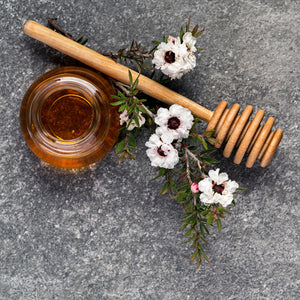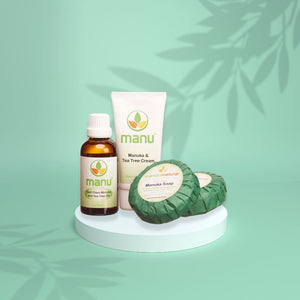
How prevent decay while your teeth are being straightened


Caught! Jumping group of oral bacteria now hiding in your fixed braces
=========================================
Whether slight teeth straightening or a strict one, all boys and girls are excited and mostly happy. They keep in mind that they have started a therapy that will change their smile and, very often, their appearance for the better. Minor teeth straightening will make well-arranged teeth easier to maintain, and their smile will be more sincere.
However, wearing fixed braces could be a long process.
Keep sight of the fact that it is more important that the teeth are healthy than that they are neatly aligned.
For this reason, hygiene must be impeccable. This means that the teeth must no longer be washed hastily and a toothbrush "wagged like a cat's tail."
Now goes the ugly truth about slight teeth straightening with fixed braces.
Hygiene must be raised to a much higher level paying particular attention to the parts of the teeth between the brackets and the gingiva because these are potential places for the collection of dental plaque.
This is also when many introduce interdental brushes, and shower mouth rinses into the routine. And that is not without reason.

What happens when you don't bring a new fixed braces cleaning routine?
One research showed how these bacterial fungi in our saliva can work together to cause tooth decay. (1) https://www.biozentrum.unibas.ch/research/researc...

The findings reveal several "new functions" of the bacteria, which make them appear almost like an entirely new superorganism, including never seen before abilities to move and spread across the tooth and fixed braces surface.
A research team "caught" them doing things they would otherwise not be able to accomplish on their own. For example, the usually passive bacteria, Streptococcus mutans, was no longer bound to the saliva, and Candida albicans, the bacterium, was now able to move around by "jumping" with constant growth as it spread.
"This discovery of a superorganism is truly revolutionary and unexpected," says microbiologist Knut Drescher from the University of Basel in Switzerland, adding that no one could have predicted it.
Not that bacteria and fungi have never been found to work together before. Multicellular biofilms cause many human infections. It's more that our knowledge of how these communities develop and work is still limited.
As a group, this cellular network can be more easily attached to the teeth than the cells themselves. The discovered superorganism also shows a more substantial tolerance to antimicrobial drugs and tooth brushing.
But the most unusual thing is how the superorganism moves. When bacteria attach to fungi, they can essentially "jump" and merge with other biofilms.
When testing the superorganisms on tooth-like surfaces, the researchers found that the bacteria moved at more than 40 microns per hour, similar to the speed of wound-healing molecules in the human body.
Within hours of the two pathogens attaching, the authors "caught" the bacteria jumping onto substrates 100 microns apart, a distance more than 200 times their standard body length. To the team's knowledge, no one else has reported this type of group-level mobility.
"Dynamic fungal-bacterial interactions lead to biofilm superstructures that cause more extensive and severe damage to the enamel surface and the tooth itself," the authors wrote.
If bacteria and fungi could somehow be prevented from binding, researchers think it could help prevent tooth decay. This discovery is essential in dentistry and outside its field of action.
The new findings may help explain how similar superorganisms spread infectious diseases or cause environmental contamination at such a rate.
"This collective multicellular mode of migration opens up intriguing concerns," the authors added.
And these are situations without fixed braces or other dental implants.
Can you imagine what happens in your mouth when the bacteria stay? Or when your brush missed the right place somewhere on your fixed braces?
Biometals are suitable for slight teeth straightening or implants in dental fields. In particular, it has been widely used in treating maxillofacial fractures and reconstructions in oral and maxillofacial surgery. And its efficiency and safety have been verified.
However, it has been reported that fixed braces have disadvantages, such as foreign body reactions with surrounding tissues, infection, and inflammatory responses caused by micro-organisms in the oral cavity after implantation.
Coming up with and developing a biocompatible prosthetic fix with antimicrobial properties against representative micro-organisms and general pathogens present in the oral cavity can increase the success rate of keeping your teeth's health intact.
But also keeping your slight teeth straightening unsmelly.
So some brilliant people came to the conclusion that among various antibacterial materials, antibacterial extracts derived from natural products provide better biosafety for the human mouth than artificial antimicrobial agents.
In addition, natural extracts have excellent flavor and antibacterial, antifungal, antimicrobial, bactericidal, and insecticidal properties.
Their first try? Manuka essential oil.
You can see the study here. (2) https://www.mdpi.com/2079-4991/12/3/569
Why manuka essential oil? There is no surprise here. It is one of the world's most potential essential oils.

Manuka essential oil, derived from the East Cape region of New Zealand, is extracted from the tea tree by steam distillation. It is composed of significant quantities of triketones and exhibits excellent antibacterial properties.
It is obtained by steam distillation of the leaves, twigs, and flowers of the Leptospermum scoparium plant. The active components of the oil are: Leptospermone, (E)-Calamenene, a-Pinene, Cadina-3,5-diene, Delta-Cadinene, a-Copaene, Favesone, Cadina-1,4-diene, B-Selinene, a-Selinene, Isoleptospermone.
Manuka oil showed inhibitory activity against all strains. In particular, a better antibacterial effect was observed against Gram-positive bacteria than against Gram-negative bacteria.
Among all the tested strains, the inhibition sensitivity at low concentrations of manuka oil was highest against S. epidermidis, while the strength of inhibitory activity was strongest against P. gingivalis. In particular, it was confirmed that manuka oil has significant antibacterial activity at a very low concentration of 0.2% or more, like in the case of E. coli.
Please note that diluted or pure manuka essential oil is not recommended for oral application.
How to apply manuka oil to your fixed braces | Fixed dental braces maintenance?
UB Dental Care spray!
Its main ingredients are manuka UMF honey and manuka hydrosol.
You may wonder what manuka hydrosol is. It is a natural byproduct from the steam distillation of the Manuka Essential Oil. Manuka Hydrosol has antibacterial, antifungal, and antiviral properties and contains colloidal suspensions of essential oil and water.
UB Dental Care spray is a natural oral spray formulated to reduce the buildup of plaque and tartar and prevent bad breath.
Natural Manuka UMF honey and Manuka hydrosol (from the manuka oil distillation process) have proven effective against oral bacteria causing gingivitis.
As a spray, it can help you reach places where it needs to kill all those bacteria we discussed.
But, no, this doesn't mean you can skip brushing. Instead, Manuka dental spray will help keep your teeth healthy while aligning them with a fixed prosthesis.

In the end …
Irritation may occur while wearing fixed braces. If this happens, sage tea has proven to be an excellent natural solution, along with which you can also use a UB Dental Care spray. So, every morning after you get up, make yourself a cup of this tea to ease your discomfort.
And you know what?
Be patient. Wearing braces can be painful, even if it's slight teeth straightening case, but it is a period that does not last long, and regular hygiene is more necessary than ever.
ORIGINALLP PUBLISHED on blog.manukanatural.com



